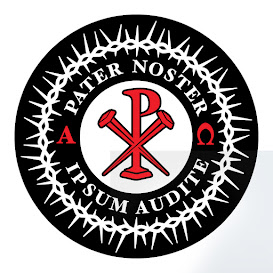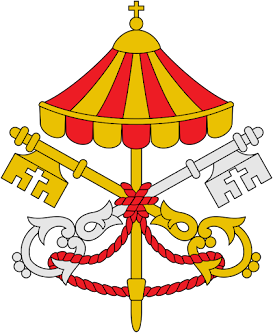Zoals RKnieuws.net eerder al aankondigde heeft de pauselijke commissie Ecclesia Dei vandaag de instructie ‘Universae Ecclesiae’ die de interpretatie van het Motu Propio ‘Summorum Pontificum’ moet vergemakkelijken gepubliceerd. Het document van paus Benedictus XVI, dat op 7 juli 2007 gepubliceerd werd, had het gebruik van de liturgische boeken in het Latijn van voor het Tweede Vaticaans Concilie (1962-1965) geliberaliseerd. Volgens insiders is het nieuwe document duidelijk een handreiking aan de traditionalisten.
De instructie is in feite een soort handleiding voor de correcte interpretatie van het Motu Proprio van juli 2007. Bedoeling van de instructie is de bisschoppen nog meer aan te zetten om de viering van de mis volgens de ‘buitengewone’ ritus te vergemakkelijken. Met name gaat het om de ritus in het Latijn van het missaal dat in 1962 door paus Johannes XXIII werd goedgekeurd.
Met deze instructie wil de Paus de buitengewone vorm van Romeinse ritus “als bijzondere schat aan alle gelovigen aanbieden”. De instructie stelt dat de pastoors dergelijke vieringen in hun kerk moeten toelaten. Priesters die in deze viering willen voorgaan moeten voldoende vertrouwd zijn met het Latijn, aldus de instructie. Seminaristen moeten vertrouwd gemaakt worden met deze vorm van vieren. De lezingen kunnen zowel in het Latijn als in de volkstaal worden gehouden.
------------------------------
On, May 13, 2011 (the Feast of Our Lady of Fatima), the Pontifical Commission Ecclesia Dei released the Instruction Universae Ecclesiae ("To the Universal Church"), "on the application of the Apostolic Letter Summorum Pontificum." Summorum Pontificum, released motu proprio by Pope Benedict XVI on July 7, 2007, restored the Traditional Latin Mass as (in the words of Universae Ecclesiae) one of "two usages of the one Roman Rite." Celebrated according to the Roman Missal promulgated by Pope John XXIII in 1962, the "Tridentine Mass" (as it is often called) was the universal Mass of the Roman Rite of the Catholic before Pope Paul VI issued his Novus Ordo in 1970.
Specific Norms of Universae Ecclesiae Concerning Bishops, Priests, and Laity:
Bishops are to "undertake all necessary measures to ensure respect for the forma extraordinaria of the Roman Rite," "always in agreement with the mens ['mind'] of the Holy Father clearly expressed by the Motu Proprio Summorum Pontificum."
Any "group of the faithful" attached to the Extraordinary Form of the Mass, whether that group existed before the publication of Summorum Pontificum or came together afterward, and whether that group belongs to a single parish or to "different parishes or dioceses," can legitimately request the celebration of the Traditional Latin Mass, and the request should be respected.
Pastors are to allow visiting priests to celebrate the Traditional Latin Mass, and "Even in sanctuaries and places of pilgrimage the possibility to celebrate in the forma extraordinaria is to be offered to groups of pilgrims who request it . . . , if there is a qualified priest."
Small groups of the faithful can ask the local bishop to "identify a church in which these faithful may be able to come together for such celebrations, in order to ensure easier participation and a more worthy celebration of the Holy Mass" (and the bishop, in keeping with his responsibilities listed above, should do so).
"Every Catholic priest who is not impeded by Canon Law is to be considered idoneus ('qualified') for the celebration of the Holy Mass in the forma extraordinaria" and "priests are presumed to be qualified who present themselves spontaneously to celebrate the forma extraordinaria, and have celebrated it previously." This removes one objection raised by many bishops, who claimed that most priests in their diocese were not qualified to celebrate the Traditional Latin Mass.
In case such bishops continue to raise this objection, however, Universae Ecclesiae declares that, "In Dioceses without qualified priests, Diocesan Bishops can request assistance from priests of the Institutes erected by the Pontifical Commission Ecclesia Dei, either to celebrate the forma extraordinaria or to teach others how to celebrate it."
Moreover, the problem of a lack of qualified priests should disappear over time, because bishops "are asked to offer their clergy the possibility of acquiring adequate preparation for celebrations in the forma extraordinaria. This applies also to Seminaries, where future priests should be given proper formation, including study of Latin and, where pastoral needs suggest it, the opportunity to learn the forma extraordinaria of the Roman Rite."
While there has been some question whether priests who wished to celebrate the Traditional Latin Mass could do so without any laity present, Universae Ecclesiae makes it clear that they can: "For such celebrations . . . priests, by provision of the Motu Proprio Summorum Pontificum, do not require any special permission from their Ordinaries or superiors."
http://press.catholica.va/news_services/bulletin/news/27407.php?index=27407&lang=en#TRADUZIONE%20IN%20LINGUA%20INGLESE
vrijdag 13 mei 2011
Abonneren op:
Reacties posten (Atom)
S.E. Mons. Mario OLIVERI - Vescovo emerito di Albenga-Imperia

We Stand In Support of Padre Stefano Manelli

Paus Benedictus XVI

Een meditatie over het Heilig Misoffer
2 Timoteüs 2:3 Neem ook uw aandeel in het lijden als een goed krijgsknecht van Christus Jezus

-------- “Wij zijn de zonen van de Kruisvaarders en we zullen niet terugdeinzen voor de zonen van Voltaire.” -------- -------- “We are the sons of the Crusaders and we shall not recoil before the sons of Voltaire.” ------------------------- -------- “Noi siamo i figli dei Crociati e non indietreggeremo davanti ai figli di Voltaire!” ---------------------------------



























5 opmerkingen:
Een stap in de goede richting, zeker met de mogelijkheid om de kalender aan te vullen.
Hopelijk volgt hierop ooit een herstel van de rite van voor '55, dus voor alle aanpassingen door Bugnini.
@ Tom L.
Of een stap verderweg misschien... Sorry, maar "de" katholieke Kerk kan gerust nog "de" katholieke Kerk blijven in wezen zonder daarom wereldvreemde daden te moeten stellen hoor. Niet de verpakking is de essentie (Latijn, ritus, ...) maar de inhoud. Denk aan wat Jezus zei: witgekalkte graven, ... Liever een "hedendaagse" en begrijpbare aanpak van een viering die naar de essentie gaat, dan een onbegrijpbare show die aan de essentie voorbij gaat.
Humilitas; latijn en de ritus IS de essentie.
Als dat voor jouw een "onbegrijpbare show" is, dat moet je het maar een beetje bestuderen. Het is echt niet moeilijk.
@ Michel
Net omdat ik het bestudeerd heb, weet ik dat de inhoud de essentie is en niet de verpakking. Sprak Jezus misschien Latijn? Neen ,maar Hij sprak wel de taal van de Liefde. En die ontbreekt vaak...
Latijn is wel de taal van de Kerk! Liefde? In de Bijbel lezen we ook:"Wie de roede spaart, haat zijn kind!"
Een reactie posten